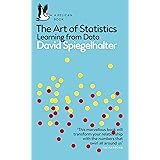Role of AI in Health Insurance
Role of AI in health insurance industry is rapidly evolving, with the potential to revolutionize the way insurers operate and how they interact with their policyholders.
Role of AI in Health Insurance
AI can process vast amounts of data, identify patterns, and make predictions, which can help insurers better understand their customers’ health risks and provide more personalized coverage.
In this article, we will explore eight ways in which AI is transforming the health insurance industry.
1. Claims Processing
One of the most significant ways in which AI is impacting the health insurance industry is through claims processing.
Traditionally, claims processing involved manual review of medical records by claims adjusters, which was a time-consuming and expensive process.
AI-powered systems can now automatically review medical records, identify relevant information, and determine whether the claim is valid or not.
This not only speeds up the claims processing time but also reduces costs for insurers as they no longer need to employ a large number of claims adjusters.
How to read or export large datasets in R » finnstats
2. Underwriting
Underwriting is the process by which insurers assess an individual’s risk and determine whether to offer them coverage and at what premium.
AI can help insurers to better understand an individual’s health risks by analyzing their medical history, lifestyle factors, and other relevant data.
This enables insurers to offer more personalized coverage that reflects an individual’s unique risk profile.
Additionally, AI can help insurers identify high-risk individuals earlier in the underwriting process, allowing them to offer more targeted coverage or exclude certain risks altogether.
3. Fraud Detection
Healthcare fraud is a significant problem for insurers, with estimates suggesting that it costs the industry billions of dollars each year.
AI can help insurers to detect fraudulent claims by analyzing patterns in medical records and identifying unusual activity.
This enables insurers to take swift action against fraudsters, reducing their losses and protecting their policyholders from unnecessary costs.
4. Telemedicine
Telemedicine refers to the use of technology to provide healthcare services remotely.
AI can help to facilitate telemedicine by providing virtual consultations with healthcare professionals, analyzing medical images and test results, and even providing real-time monitoring of patients’ vital signs.
This enables insurers to offer more convenient and cost-effective healthcare services to their policyholders, while also reducing the burden on traditional healthcare facilities.
5. Predictive Analytics
Predictive analytics involves using AI to analyze large volumes of data and identify patterns that can be used to make predictions about future events.
In the context of health insurance, predictive analytics can be used to identify individuals who are at high risk of developing certain health conditions, enabling insurers to offer more targeted coverage or preventative care services.
This not only helps insurers to reduce their losses but also helps policyholders to better manage their health risks.
6. Customer Experience
AI can help insurers improve the customer experience by providing more personalized service and faster response times.
For example, chatbots powered by AI can provide policyholders with immediate answers to their questions, while virtual assistants can help them manage their healthcare needs more effectively.
Additionally, AI-powered systems can help insurers to better understand their policyholders’ needs and preferences, enabling them to offer more tailored products and services.
7. Workforce Management
AI has the potential to transform workforce management in the health insurance industry by automating routine tasks and freeing up employees’ time for more value-added activities.
For example, AI-powered systems can be used to automate claims processing, freeing up claims adjusters’ time for more complex tasks such as investigating fraudulent claims or negotiating settlements with healthcare providers.
Additionally, AI can be used to automate administrative tasks such as data entry or document processing, freeing up employees’ time for more strategic activities such as developing new products or services or engaging with policyholders directly.
8. Regulatory Compliance
AI has the potential to transform regulatory compliance in the health insurance industry by providing a more efficient and effective way of managing compliance obligations.
For example, AI-powered systems can be used to automatically monitor compliance with regulatory requirements such as reporting obligations or disclosure requirements, reducing the burden on compliance teams and minimizing the risk of non-compliance penalties or fines.
Additionally, AI can be used to proactively identify areas where compliance risks may arise, enabling insurers to take swift action before any issues arise.
Conclusion
AI is transforming the health insurance industry in numerous ways that are benefiting both insurers and policyholders alike.
From claims processing and underwriting to customer experience and regulatory compliance, AI is helping insurers to operate more efficiently and effectively while also providing policyholders with more personalized service and better outcomes overall.
As AI continues to evolve at a rapid pace, it is clear that its impact on the health insurance industry will only continue to grow in significance over time.
Best Books on Data Science with Python » Data Science Tutorials




